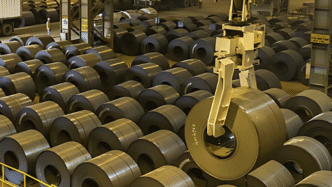Jindal Stainless has supplied premium 301N austenitic stainless steel for Bangalore Metro Phase-2, strengthening its role in India’s urban transport growth. The steel has features like strength, durability, and sustainability which enhances metro coach performance efficiency and safety. The delivery supports Bangalore’s expanding metro network and India’s broader transit modernization goal.
Introduction:
Jindal Stainless, India’s largest stainless steel producer, has strengthened its footprint in the country’s metro infrastructure by supplying premium-grade 301N austenitic stainless steel for the Bangalore Metro Phase-2 project. This milestone underscores the company’s role in powering India’s rapidly expanding urban transport systems with durable, sustainable, and high-performance material solutions.
Contribution to Bangalore Metro:
The Bangalore Metro Phase-2 expansion, inaugurated by Hon’ble Prime Minister Shri Narendra Modi, marks a significant boost for the city’s connectivity. To support this project, Jindal Stainless has already supplied 1,031 metric tonnes of 301N stainless steel, with additional deliveries scheduled as construction advances.
Key applications of the steel include:
- Metro Coach Structures: Used in roofs, side panels, and key structural parts.
- Durability and Safety: Ensures superior fire and crash resistance.
- Sustainability: Low carbon footprint and complete recyclability.
- Operational Efficiency: High strength-to-weight ratio improves coach performance.
This supply complements the induction of three new trainsets by BMRCL in August 2025, sourced from the CRRC–Titagarh Consortium under the 53-trainset expansion program.
Broader Metro and Rail Legacy:
Jindal Stainless has consistently been a preferred supplier for Indian metro projects. Its stainless steel has been integral to:
- The world-class underwater metro line in Kolkata.
- The first Vande Metro train.
- India’s first Regional Rapid Transit System (RRTS).
- Metro networks in Mumbai, Delhi, and Chennai.
Beyond India, Jindal Stainless has partnered with Alstom India to supply stainless steel for international metro projects in Queensland, Melbourne, and Sydney.
Manufacturing Excellence:
The company’s facilities are equipped with advanced capabilities, producing slabs, coils, sheets, precision strips, and structural components. By FY27, Jindal Stainless aims to scale up to 4.2 million tonnes of annual melt capacity, with current operations spanning India, Spain, and Indonesia.
Sustainability remains a cornerstone of its manufacturing. Using electric arc furnace technology, the company reduces greenhouse gas emissions while ensuring recyclability of scrap without compromising on quality.
Jindal Stainless continues to align innovation with national priorities, supporting flagship transport projects under India’s modernization drive.
Insight:
Managing Director, Jindal Stainless, Shri Abhyuday Jindal, said, “We are proud to support the modernisation of India’s metro infrastructure, which is central to strengthening urban mobility and aligns with the nation’s vision of building resilient and sustainable transport systems. The use of 301N austenitic stainless steel, a safer and more sustainable material, supports the sustainability goals of modern rail transport. By supplying to the Bangalore metro, we reaffirm our commitment to building safer, long-lasting, and sustainable metro networks.”
Conclusion:
The supply of stainless steel for Bangalore Metro Phase-2 showcases Jindal Stainless’s leadership in India’s mobility modernization. With proven global partnerships, sustainability-driven manufacturing, and decades of rail sector contribution, the company is set to remain a backbone of future-ready metro and rail projects in India and abroad.
Source: Jindal Stainless – Press Release | Image Credit (representational): Jindal Stainless
[Nominations are Open] Submit your nomination (free) for the 7th Rail & Metro Awards 2026: Link
![]() Timely insights, straight to your WhatsApp—stay updated with ease!
Timely insights, straight to your WhatsApp—stay updated with ease!
![]() Stay connected to the rail industry—timely news, straight to Telegram!
Stay connected to the rail industry—timely news, straight to Telegram!


